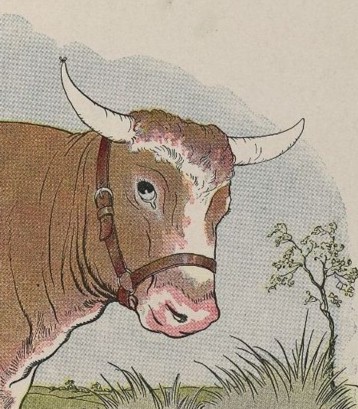PART A_1
Let’s learn vocabulary. Listen and repeat the words and the sentences with your tutor.
PART A_2
| 1. buzz | /buzz/ |
| -a low, vibrating, humming sound, as of bees, machinery, or people talking. | |
| The buzzing sound from his mother’s phone scared the toddler. | |
| 2. tip | /tip/ |
| -a slender or pointed end or extremity, especially of anything long or tapered: | |
| She injured her fingertips from playing the guitar too often. | |
| 3. horn | /hawrn/ |
| -one of the bony, permanent, hollow paired growths, often curved and pointed, that project from the upper part of the head of certain hooved mammals | |
| An amateur photographer was able to take a photo of a white goat with huge horns. | |
| 4. settle | /set-l/ |
| -to place in a desired state or in order: | |
| The new club members settled on one corner of the classroom. | |
| 5. conceit | /kuhn-SEET/ |
| -an excessively favorable opinion of one’s own ability, importance, wit, etc. | |
| The applicant was not hired because she was full of conceit. |
PART B_1
Let’s read the story. Please read them aloud, and I will check your pronunciation and intonation.
PART B_2
THE GNAT AND THE BULL

A Gnat flew over the meadow with much buzzing for so small a creature and settled on the tip of one of the horns of a Bull. After he had rested a short time, he made ready to fly away. But before he left he begged the Bull’s pardon for having used his horn for a resting place.
“You must be very glad to have me go now”, he said.
“It’s all the same to me”, replied the Bull. “I did not even know you were there.”
We are often of greater importance in our own eyes than in the eyes of our neighbor. The smaller the mind the greater the conceit.
“You must be very glad to have me go now”, he said.
“It’s all the same to me”, replied the Bull. “I did not even know you were there.”
We are often of greater importance in our own eyes than in the eyes of our neighbor. The smaller the mind the greater the conceit.
PART C_1
Let’s answer comprehension questions. Please answer them based on the story.
PART C_2
| 1. | Where did the Gnat rest for a moment? |
| 2. | Did the Gnat inform the Bull that it is leaving? |
| 3. | How did the Bull respond to the Gnat? |
PART D_1
Let’s discuss the story. Please answer the questions below and express your opinions.
PART D_2
| 1. | How would you describe the Gnat? |
| 2. | How would you describe the Bull? |
| 3. | How do you think the Gnat react upon knowing that its presence did not matter to the Bull? |
| 4. | The fable’s lesson is “We are often of greater importance in our own eyes than in the eyes of our neighbor. The smaller the mind the greater the conceit.” Do you agree with this? Why or why not? |
| 5. | In your opinion, what makes a person conceited? |
REVIEW AND FEEDBACK
Now, let us review the things that you learned in this lesson.
ではこのレッスンで学んだことを振り返りましょう。
(Please give a short feedback on how your student did on your class.)
| Grammar 文法 |
Pronunciation 発音 | Vocabulary 単語 |
Comprehension 理解 |
|
|---|---|---|---|---|
 GOOD GOOD |
文法の誤りはほとんどなく、完全な文章で話すことができる | ほとんどの単語をはっきりと正しく発音することができる | 習った表現を適切に使うことができる | 文章を理解し、質問に正しく答えることができる |
 FAIR |
文法の誤りはあるが、完全な文章で話すことができる | 発音の練習が必要な言葉がいくつかある | たまにミスはあるが、習った表現を適切に使うことができる | 文章を完全に理解するのは難しく、質問に正しく答えられないときもある |
 POOR |
文章で話すのは難しく、単語だけで話すことができる | 発音の練習が必要である | 習った単語と表現を少しだけ使うことができる | 文章を理解するのは難しく、質問に答えるのは難しい |
Parts of this lesson material are based on:
An eBook from The Project Gutenberg.
This eBook is for the use of anyone anywhere at no cost and with almost no restrictions whatsoever. You may copy it, give it away or re-use it under the terms of the Project Gutenberg License included with this eBook or online at www.gutenberg.org
An eBook from The Project Gutenberg.
This eBook is for the use of anyone anywhere at no cost and with almost no restrictions whatsoever. You may copy it, give it away or re-use it under the terms of the Project Gutenberg License included with this eBook or online at www.gutenberg.org